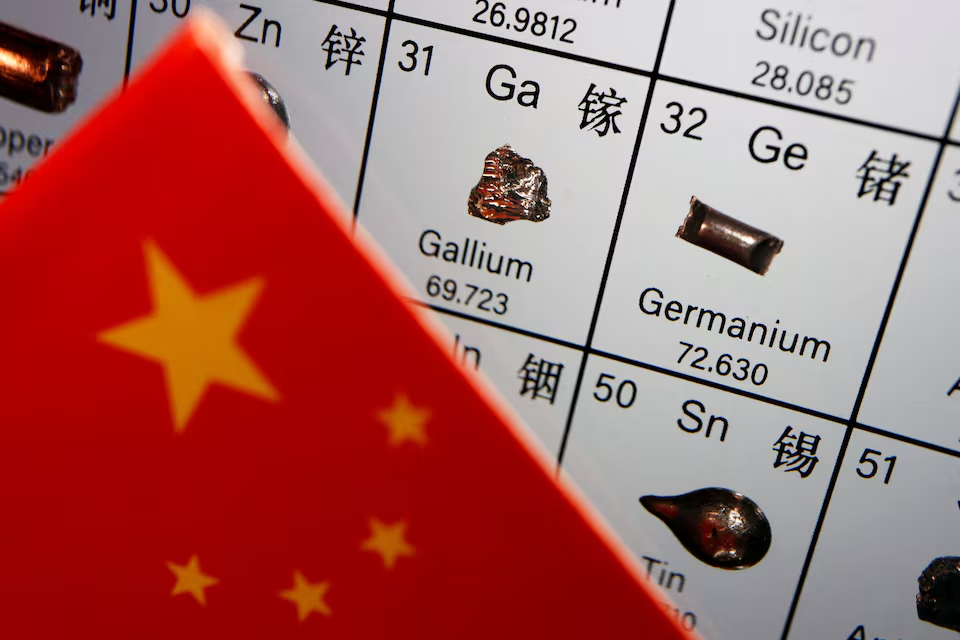China’s escalating trade restrictions on critical minerals are sending shockwaves through Western industries, leaving companies scrambling to secure alternative sources for materials vital to manufacturing and technology. The latest restrictions, targeting exports of antimony, gallium, germanium, and graphite, are impacting sectors ranging from automotives to military equipment, creating significant supply chain disruptions.
Henkel Declares Force Majeure
German industrial giant Henkel has been among the hardest hit. The company, which relies on antimony for its adhesives and lubricants branded under Bonderite and Teroson, declared force majeure in November. Henkel cited delays in raw material imports caused by China’s export licensing requirements, according to a letter to customers.
The adhesives division, a cornerstone of Henkel’s business with €10.79 billion ($11.4 billion) in revenue last year, is struggling to maintain operations. “We are monitoring the global supply situation of antimony very closely and aim to restore solutions to fulfill our customers’ orders,” the company assured.
Soaring Antimony Prices and Military Impact
Antimony, a critical mineral used in military applications like ammunition, infrared missiles, and night vision goggles, has seen its price skyrocket by nearly 230% in 2024, reaching $39,000 per metric ton in Rotterdam. China, the world’s largest producer of antimony, has cornered the market, leaving Western nations heavily dependent on its exports.
The United States, where Henkel manufactures Bonderite products in Michigan, has been directly targeted by Beijing’s outright export bans on antimony, gallium, and germanium. These restrictions came in retaliation for U.S. measures against China’s semiconductor industry, further intensifying global trade tensions.
Western Efforts to Reduce Dependency
China’s trade curbs have intensified efforts in the West to reduce reliance on Chinese minerals. Companies like Perpetua Resources are developing new antimony mines, such as the U.S. government-funded project in Idaho. However, developing mines takes years, leaving industries vulnerable in the short term.
United States Antimony (USAC), the only North American processor of the mineral, is ramping up production at its Montana smelter, which has been operating at 50% capacity. “Our decision to increase output was driven by the tripling of worldwide antimony prices,” said Gary Evans, USAC’s chairman. The company is also in talks to source materials from four other countries and a domestic supplier to mitigate the impact of China’s restrictions.
Graphite and Germanium Markets Also Disrupted
China’s restrictions on graphite, essential for electric vehicle (EV) batteries, have similarly upended global markets. Northern Graphite, North America’s sole producer of natural flake graphite, reported a 50% surge in demand following Beijing’s announcement. The company is expanding its production capacity in Namibia, Ontario, and Quebec to meet rising demand.
For germanium, U.S.-based companies like ReElement Technologies are shifting their focus to recycling and refining domestic sources. Meanwhile, Canadian miner Teck Resources, which produces germanium as a byproduct at its Red Dog zinc mine in Alaska, is exploring ways to boost output.
Rising Costs and Market Realignments
The supply chain disruptions have driven up costs for critical materials, with gallium prices outside China increasing by 30% to 40% year-over-year. Many Chinese traders have exited the market due to licensing challenges, and no Chinese exports of germanium or gallium were recorded to the United States in 2024, compared to significant volumes in 2023.
De-Risking Supply Chains: A Strategic Priority
China’s mineral export restrictions highlight the urgency for Western industries to diversify supply chains. Automaker Stellantis, for instance, is reevaluating its sourcing strategies to avoid over-reliance on Chinese or Korean suppliers.
“When you de-risk, you need to de-risk with different levers,” said Stellantis’ Chief Purchasing Officer Maxime Picat. “Relying on a single solution puts you at significant risk.”
The Road Ahead
As Beijing doubles down on leveraging its dominance in strategic minerals, Western industries face an uphill battle to adapt. While new mining projects and recycling initiatives are gaining momentum, the road to self-reliance remains long, and the geopolitical stakes are higher than ever.



